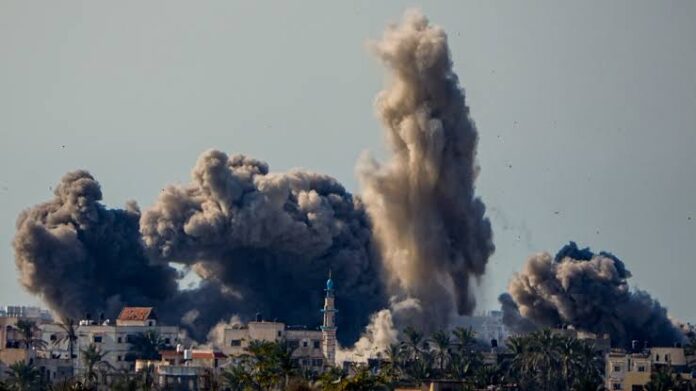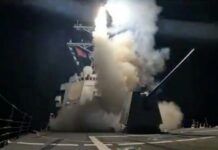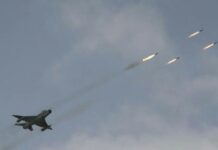Geopolitical Dynamics in the Middle East: The Israel-Hezbollah ceasefire, Syria’s instability, and Nigeria’s foreign policy challenges, by Ahmad Shuaibu Isa
War breeds only sorrow, where tyrants tread, leaving shadows where once hope had led.
The recent ceasefire between Israel and Hezbollah, coupled with the ongoing military operations in Syria, illuminates the complex and multifaceted geopolitical dynamics characterising the Middle East. This situation underscores the intricate relationships among regional actors such as Israel, Hezbollah, Syria, and Iran, alongside major international powers like the United States and Russia.
The ceasefire, achieved on 26 November 2024, is the result of military exhaustion and a convergence of domestic and regional pressures. For Israel, prolonged military engagement has led to a decline in public support, particularly among reservists and the general populace, who are fatigued by the ongoing conflict. Israeli Prime Minister Netanyahu is facing internal political challenges, notably from ultra-Orthodox parties advocating for military conscription exemptions. The ceasefire offers temporary relief, allowing Israel to concentrate on other security concerns while addressing its internal stability.
Hezbollah, too, has faced significant losses and structural damage due to the conflict. Nevertheless, the group continues to resist Israeli occupation forces, demonstrating its determination. Hezbollah’s allegiance with Iran places it at the heart of the wider regional conflict involving Israel, Iran, and the United States.
READ ALSO: Africa: Resistance and the shift in the global power dynamics, by Ahmad Shuaibu
Syria, deeply unstable after years of war, remains a critical focal point of military action. Israeli airstrikes targeting Iranian positions within Syria indicate Israel’s long-standing objective of curbing Iranian influence near its borders. Iran utilises Syria as a strategic corridor to project power into Lebanon through Hezbollah, making the country a pivotal battleground in this broader regional rivalry.
While Syria’s territorial integrity has suffered immeasurably due to prolonged conflict, the U.S. and its allies, particularly Israel, continue to erode the Syrian government through support for various armed factions. Recent admissions from captured Al-Qaeda operatives regarding their funding and training by Turkey highlight the intricate web of foreign interference in Syria. These actions contribute to the fracturing of the region, complicating efforts toward stabilisation and raising security concerns for Israel.
The rivalry between the United States and Iran remains a central component of Middle Eastern geopolitics. U.S. backing for Israel’s initiatives to contain Hezbollah and diminish Iran’s influence underscores the competitive struggle for control of the region’s strategic assets. This intensifying competition, accompanied by military engagement and diplomatic manoeuvring, influences both regional stability and global security, particularly concerning oil markets. Heightened tensions could disrupt global energy supplies, with potentially destabilising consequences for international markets.
Despite the numerous challenges it confronts, Syria continues to demonstrate resilience against external pressures. The country exposes the hypocrisy of those nations that profess to combat terrorism while simultaneously supporting extremist groups in the region. NATO members, particularly Turkey and Israel, have been accused of exacerbating the conflict in Syria under the pretext of regime change, further destabilising an already fragile landscape. Such actions underscore the detrimental role of foreign powers in perpetuating violence while undermining peace.
In Africa, Nigeria is navigating a complex diplomatic landscape as it endeavours to balance relationships with both Israel and Iran. Recent criticisms from the Israeli Ambassador in Nigeria regarding Iran have sparked internal tensions, particularly within the Muslim demographic. Nigeria’s foreign policy approach must adeptly manage these delicate dynamics, particularly in light of its security challenges in the North and ongoing counter-terrorism efforts.
While Nigeria values Israel’s expertise in counter-terrorism, the escalating tensions in the Middle East complicate cooperation, especially in its Muslim-majority regions. Additionally, Nigeria’s economic interests, specifically in energy markets, are intricately linked to both Iran and Israel, necessitating careful diplomatic engagement to safeguard national interests. Henceforth, Nigeria’s future security policy will increasingly rely on its ability to navigate these relationships and address the underlying political, social, and economic challenges.
In Lebanon, the ceasefire bears particular significance against the backdrop of the country’s dire economic and political crisis. Western analyses often argue that conflict with Hezbollah has deepened sectarian tensions. While the ceasefire presents a temporary reprieve, the fundamental political objectives of Israel, Hezbollah, and Iran remain unchanged. Despite the prospect of relative stability, ongoing disputes, such as territorial issues surrounding the Shebaa Farms, continue to pose challenges.
International and regional powers, including the United States, Iran, China, and Russia, will play crucial roles in shaping the future of Lebanon and the wider Middle East. A durable ceasefire could serve as a basis for negotiating Israel-Lebanon territorial disputes, provided there is a concerted diplomatic effort accompanied by goodwill from all parties, including a reassessment of U.S. support for Israel.
The evolving geopolitical dynamics within the Middle East reflect a larger struggle for regional dominance, carrying significant implications for global security and stability. Ongoing conflicts in Syria, the ceasefire between Israel and Hezbollah, and the complex interrelationships between major powers illustrate the volatile nature of the region. This situation highlights the difficulties faced by nations like Nigeria, which must navigate these tensions while safeguarding their interests.
As these dynamics unfold, it becomes increasingly evident that the instability plaguing the Middle East will continue to shape global politics. Addressing the underlying political, social, and economic grievances within the region, particularly an end to Israel’s aggression against the Palestinian people, is crucial for fostering long-term stability and preventing further upheaval.
The future of Middle Eastern geopolitics hinges upon diplomatic engagement, regional cooperation to combat oppression, and the ability to balance competing interests in pursuit of peace and security.
War breeds only sorrow, where tyrants tread, leaving shadows where once hope had led.
Ahmad Shuaibu Isa
ahmadeesir214@gmail.com
Disclaimer
The opinions and views expressed in this article belong solely to the original author and other contributors. They do not necessarily reflect the official policy or opinions of Neptune Prime.
Follow the Neptune Prime channel on WhatsApp:
Do you have breaking news, interview request, opinion, suggestion, or want your event covered? Email us at neptuneprime2233@gmail.com





